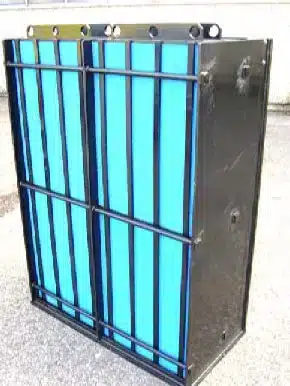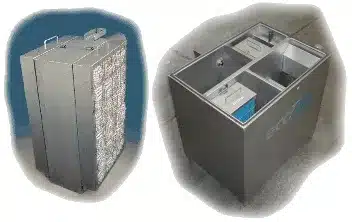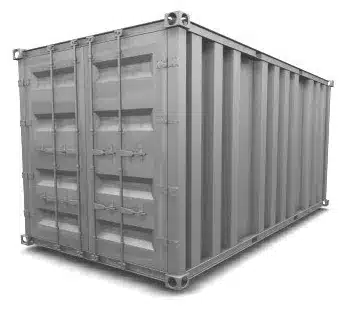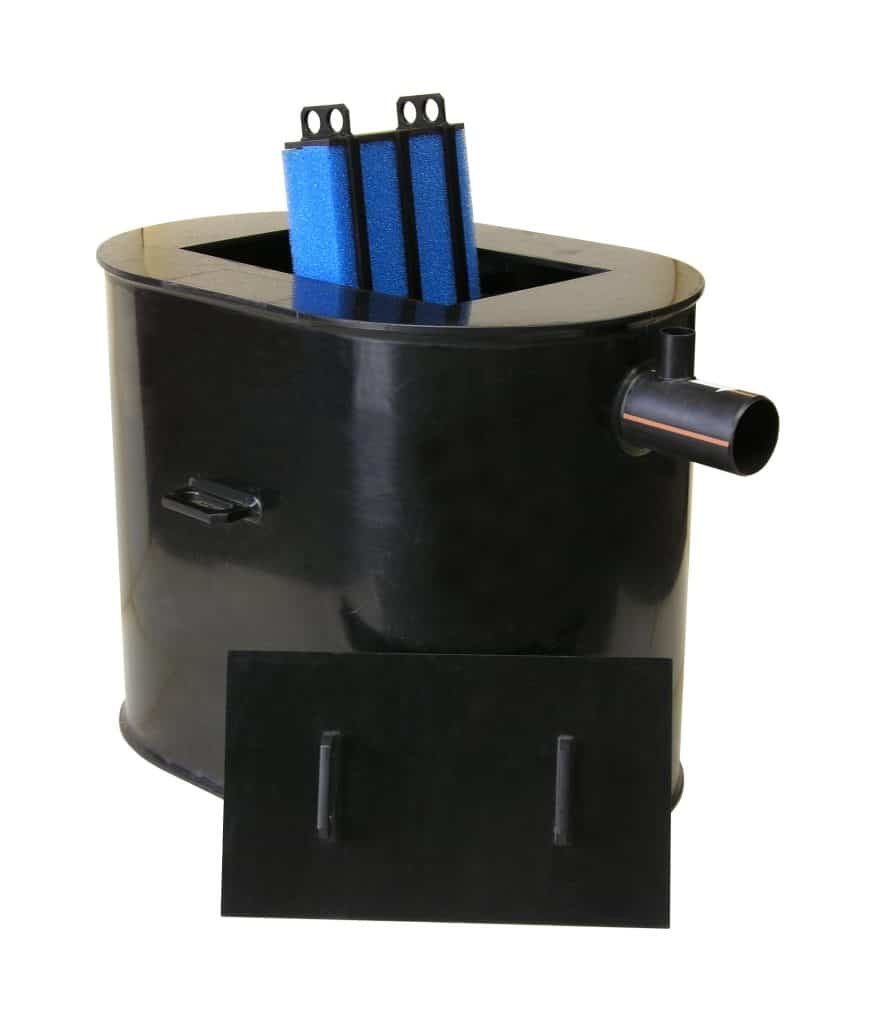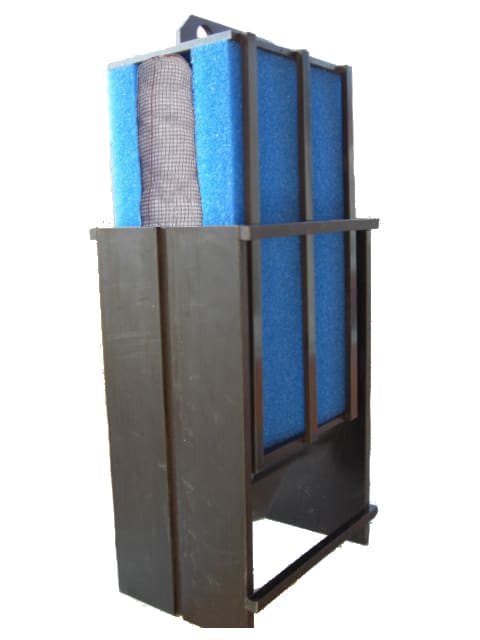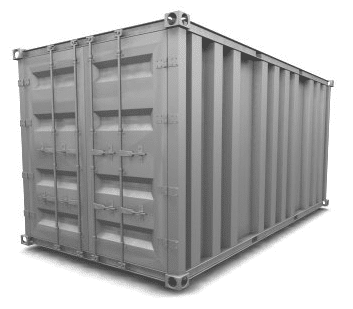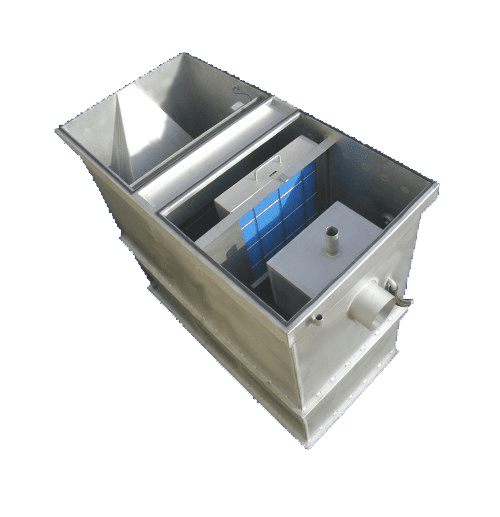Is Michigan leading the way in changing how we manage wastewater? Above Ground Oil Water Separators (OWS) are becoming popular in the Great Lakes State. They are replacing traditional below-ground setups. This change brings better safety and easier upkeep, but why is it happening?
In Michigan, the industrial sector is turning to Above Ground OWS for a smarter way to protect the environment and manage wastewater. These systems are great at separating oil from water. This means cleaner water and following strict environmental laws.
Freytech Inc.’s advanced Michigan Above Ground OWS technology is leading this change. Their systems are very good at separating hydrocarbons. They often go beyond what North American laws require, setting new high standards.
As Michigan’s industries update to new environmental rules, using Above Ground OWS is a big step. It’s a move towards better and greener wastewater management.
Key Takeaways
- Above Ground OWS are replacing traditional below-ground systems in Michigan
- Enhanced safety and easier maintenance are key benefits of above-ground installations
- Freytech Inc.’s OWS technology exceeds North American discharge limits
- Michigan industries are prioritizing efficient wastewater management
- Above Ground OWS contribute to improved environmental protection efforts
Introduction to Above Ground Oil Water Separators in Michigan
Michigan is changing how it handles wastewater treatment. It’s moving from old below-ground oil water separators (OWS) to above-ground ones. This shift means better ways to dispose of effluent and manage septic systems.
The Shift from Below Ground to Above Ground Systems
Above-ground OWS are becoming more popular in Michigan. They offer a new way to deal with wastewater from septic tanks. Moving to above ground helps solve problems with older underground systems.
Benefits of Above Ground OWS Installations
Above-ground systems have many benefits. They’re easier to get to and maintain than underground ones. This means better care for septic systems and more effective treatment of wastewater. Plus, they’re quicker to install, saving time and causing less trouble.
Safety and Maintenance Advantages
Safety is a big plus of above-ground OWS. These systems avoid the dangers of working in tight spaces found in underground setups. Keeping them up is easier and safer. They come with pre-fabricated heated enclosures that protect them from freezing and damage all year.
This design helps them work well in Michigan’s changing weather, making effluent disposal more efficient.
Michigan Above Ground OWS: A Case Study
A recent project in Michigan shows the perks of using above-ground oil water separators (OWS). These systems are part of decentralized wastewater solutions. They help industrial facilities work better and save money.
Project Overview
Freytech Inc. worked on a project to fix a failed below-ground OWS at an industrial site. They chose an above-ground model, covered with a Safe-T-Cover. This move was in line with the trend of using decentralized systems for better performance and easy access.
Installation Process
The installation was quick and smooth. First, they removed the old tank and laid a new concrete pad. Then, they set up the new system. The whole job was done in just two weeks, with little disruption to the plant. This shows how above-ground OWS are a smart choice for industrial sites.
Cost-Effectiveness
The above-ground OWS was a smart financial move. It cut down on labor costs and reduced downtime. Plus, it’s expected to save money over time with simpler maintenance and the option to move it later. This example proves decentralized wastewater systems are a wise choice for Michigan’s industrial sites.
Technical Specifications of Above Ground OWS
Freytech Inc.’s Above Ground Oil Water Separators (OWS) lead in wastewater management tech. They use advanced coalescing methods to efficiently separate oil from water. These systems can handle different hydrocarbons like motor oil, diesel, gasoline, and jet fuel.
The OWS from Freytech is highly efficient at separating oil. It can get the oil content in treated water down to 5 PPM. This is well below the North American limit of 10 PPM. For emulsified oil, it can even get down to 0.1 PPM.
These on-site sewage facilities are easy to use and maintain. They are installed above ground, making it easy to access all parts. This design makes them safer and cuts down on downtime for maintenance or repairs.
The OWS systems are flexible and can be tailored to fit various industrial needs. They are key to making sure discharged water meets or beats environmental standards. This makes them vital for responsible wastewater management in many industries.
Environmental Regulations and Compliance in Michigan
Michigan is serious about protecting the environment. It has strict rules for oil water separators (OWS). These rules help keep our water clean and manage wastewater well.
Guidelines for OWS Installation
The Michigan Department of Environment, Great Lakes, and Energy has clear rules for OWS. They cover size, materials, and where to put them. Companies need permits and must follow specific steps to install correctly.
Hydrocarbon Discharge Limits
Michigan follows North American standards for hydrocarbon discharge. The limit is 10 parts per million (PPM). Freytech Inc.’s OWS technology does even better. It can separate free oil at 5 PPM and emulsified oil at 0.1 PPM, offering top environmental protection.
Environmental Protection Measures
Michigan doesn’t just focus on discharge limits. It requires regular checks, monitoring, and reports. These steps help stop pollution and protect nature. Freytech’s advanced OWS technology helps by offering effective wastewater management solutions.
Advantages of Freytech Inc.’s OWS Technology
Freytech Inc. leads in bringing advanced Oil Water Separators to Michigan’s industries. Their Above Ground Oil Water Separators are known for their top-notch separation skills. They handle both free and mixed oil with ease, setting a new benchmark.
The design of Freytech’s Oil Water Separators is above ground. This makes them easy to maintain and check, cutting down on costs. It also lowers the risk of environmental harm, which is crucial for Michigan companies.
Freytech’s OWS technology is versatile. It can separate different types of hydrocarbons, fitting various industrial needs in Michigan. This flexibility means their systems can adapt to the diverse requirements of the state’s industries.
Choosing Freytech’s Oil Water Separators gives Michigan industries a boost. These systems improve efficiency, are simpler to manage, and can be used in many ways. This puts businesses in a strong position to tackle both current and future environmental issues.
These separators are crucial in storm water systems. They process runoff to meet the US EPA’s Clean Water Act standards. With effective oily water treatment, facilities protect the environment and dodge big fines.

